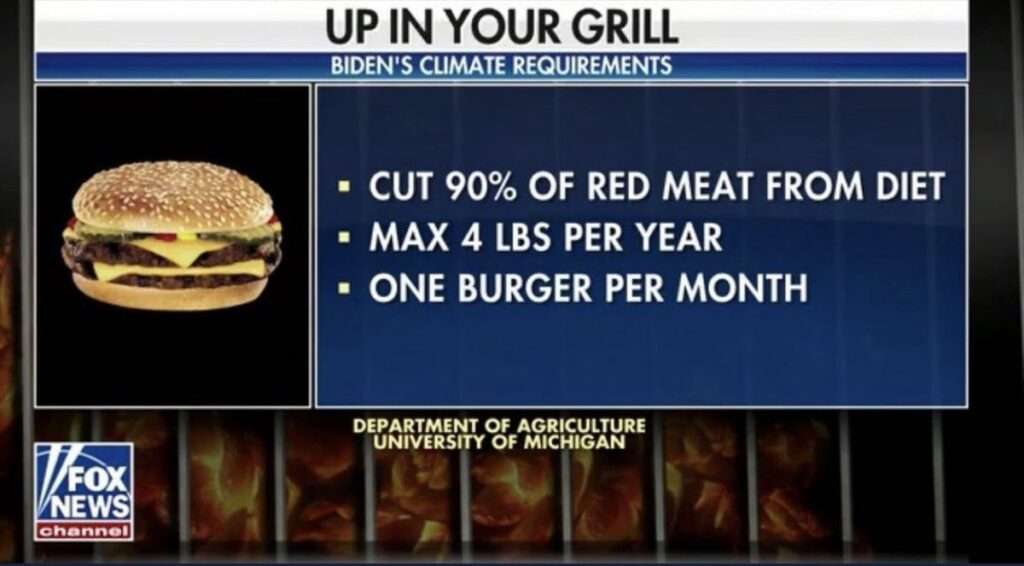We owe the modern factory farming system for the abundance of food lining supermarket shelves, but its drawbacks are well-documented: animal mistreatment, carbon emissions, contaminated products, and soil degradation, to name a few. Unfortunately, there's a growing number of well-meaning yet misguided anti-farming proposals. These efforts, while noble in intent, focus on the tools rather than addressing the root issues, much like certain gun control laws that target firearms rather than the individuals misusing them or the social problems fueling such actions. It's a case of good intentions but flawed approaches. Remember the recent controversy when conservative media falsely claimed President Biden intended to ban hamburgers? While the administration's rural plan emphasizes "investing in sustainable agriculture and conservation," the details remain vague. For instance, Biden’s strategy mentions assisting farmers in achieving net-zero emissions, but specifics are lacking. This confusion has led outlets like Fox News to misinterpret a University of Michigan report suggesting ways to cut emissions as a direct administration proposal. However, it’s crucial to understand the types of ideas being discussed within government circles, particularly as they gain traction and could significantly impact your ability to grow or raise your own food. Let’s explore two such initiatives: Oregon’s IP13 and Colorado’s PAUSE. In Oregon, activists are collecting signatures to place Initiative IP13 on the ballot, also known as the Abuse, Neglect, and Assault Exemption Modification and Improvement Act. The bill aims to eliminate exemptions for animal cruelty in farming and animal husbandry, targeting abuse, neglect, and sexual assault. Proponents argue this would ensure animals live humane lives free from harm. However, critics point out that this could severely disrupt traditional farming practices. IP13 would effectively: Such regulations could also impact common transportation and husbandry practices, leading to unforeseen challenges. Colorado’s Protect Animals from Unnecessary Suffering and Exploitation (PAUSE) initiative mirrors IP13 but allows animals to be slaughtered after reaching a fraction of their natural lifespan. For example: While PAUSE is slightly more lenient, it still poses significant challenges for farmers. If these initiatives pass, they could drastically alter the landscape of meat production and self-reliance. Here’s how: Reduced Meat Supply: Animals are typically slaughtered young because older meat is tougher and less desirable. For instance, beef cattle over 42 months are usually considered substandard. Under PAUSE, cattle would have to live at least five years, limiting quality cuts and pushing meat into lower grades. Higher Costs: With fewer animals reaching market weight and increased feed expenses, meat prices would soar. Farmers would face significant financial strain trying to maintain animals for extended periods. Increased Risk of Injury: Uncastrated males are aggressive and pose risks to both humans and other animals. Procedures like castration are essential for safety and breeding efficiency. Health Risks: Many cows require assistance during birth, which could conflict with new regulations criminalizing certain medical interventions. Food safety remains a pressing issue. Recent FDA reports link E. coli outbreaks to cattle runoff, prompting calls for stricter oversight. While the FDA doesn't regulate cattle directly, this could set a precedent for holding ranchers accountable for contamination. Instead of punitive measures, promoting practices like feeding cattle hay or using bacteriophages could mitigate E. coli risks. Meanwhile, Australian farmers are protesting a draft EPA rule labeling manure as industrial waste. Manure is a vital resource for sustainable agriculture, enriching soils and combating topsoil loss. Organic matter like manure is critical for reversing soil degradation and reducing carbon emissions. As we face potential global food crises, utilizing all available resources, including animal waste, becomes essential. a4 zip lock bags,zipper file bags,waterproof document bag,waterproof document pouch,document pouch with zipper Rongxin New Material (Jiangsu) Co., Ltd. , https://www.rongxinxcljs.com
Oregon’s Initiative IP13
Colorado’s PAUSE Initiative
Impact on Meat Production and Self-Sufficiency
Food Safety and E. Coli
Manure: Waste or Resource?